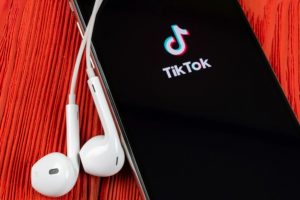Creating Patient Engagement in a Tik-Tok World
Personalization is no longer enough to break through the noise
Technology has altered human physiology. Our lives are bombarded with pictures and posts of scrumptious dinners, raging parties and enviable travel check-ins. As a result, we now live with reduced capacity in memory, attention spans and sleep cycles.  The constant stimulation from electronics makes our brain accustom to processing a fast-paced stream of information that we find on the internet. In an age where nothing lasts longer than a Tik-Tok video, creating patient engagement faces new challenges and new modes of communicating in order to meet patient needs.
The constant stimulation from electronics makes our brain accustom to processing a fast-paced stream of information that we find on the internet. In an age where nothing lasts longer than a Tik-Tok video, creating patient engagement faces new challenges and new modes of communicating in order to meet patient needs.
Digital health platforms are leading the effort to drive patient engagement with tailored health communications and content based on the specific needs of the patient. Personalized mobile experiences deliver highly relevant information at the right time, based on the individual user. This, in turn, engages and educates the patient through their unique healthcare journey. But in a world filled with millions of apps and social channels competing for attention, can digital health platforms break through the noise?
Copious communication channels
In today’s digital age, there are more ways to share thoughts, post pictures, and connect with others than ever before. Fact-to-face communication has actually reduced as the use of technology has increased, with texting and email becoming the default channel to communicate. And with the rise of social media, additional communication channels have emerged through Facebook Messenger, Instagram, Snapchat, and Tik-Tok. While healthcare systems aren’t moving to connect with patients directly through Snapchat, the rise of these short-form communication channels have altered the way and structure of engagement.
Many health systems, providers, and digital health tools now incorporate text and short-form alert statuses to help drive engagement with patients. Information must be quickly digestible and actionable for it to capture patient attention. Digital health platforms are also following patterns of social media channels by incorporating videos and interactive tools to support patient engagement. Patients want information that is easily understood, actionable, and most importantly, engaging. And with more than 1.8B people visiting Facebook daily, digital health platforms must compete for attention with information that matches these new communication rules.
Short attention spans
According to the American Psychological Association, the constant use of technology has shortened our attention span from 12 minutes down to five minutes. Our lives are now filled with constant news feeds and videos that never last longer than 10 minutes. And with news feeds and updates refreshing constantly, our brains have become conditioned to anticipate the next post. This short attention span means a change in strategy for providers and digital health platforms in their effort to engage with patients. Health updates, reminders, and rechecks must be short, informative, and capture attention.
In the Medisafe platform, users receive updates and reminders in a fun, casual tone to help draw patients in a tone and language that is more familiar and engaging. Users can opt to receive text messages as reminders and can receive guided information on medication use and administration. There are also chat rooms and online forums where patients can interact with others for support, and exchange messages in real time to connect alongside their treatment journey. As attention spans shrink, the patient experience and ongoing support must also evolve to remain effective and beneficial in order to compete for attention.
Personal and meaningful
Before today’s advanced digital technology was available, the word “personalization” referred to the simple inclusion of a patient’s name at the start of a message or update. As technology has evolved (and attention spans shortened), so has the need to personalize communication in an effort to create further engagement. In today’s digital world, digital health platforms must break through the noise with personalized updates that recognize the unique attributes of each user and deliver tailored content to meet those needs.
While technology has changed how we communicate with others, it has also enabled messaging innovations with patients that is fast, flexible, and personal in order to meet user expectations and behavior. As a result, patients expect providers, health systems, and digital health platforms to understand their needs and provide relevant and desirable information, products, services and solutions. The bar is high to capture engagement and today’s patients often won’t pay attention to a platform that doesn’t make the effort to communicate in a meaningful and pleasing way.
Timely touches
Today’s patients are digital natives and as such providers are adopting the use of mobile health apps in pursuit of improving communication and streamlining workflows. These new forms of interactive health services are facilitating a greater connectedness between patients and their care team. But to support a relationship and foster engagement, communication should be timely and ongoing. This includes reminders on upcoming screenings, invitations to relevant events and activities, and participation in surveys and quizzes to support ongoing engagement.
In cases of patient portals, studies found that patients only interacted with the platform when information was pushed to users, creating a large valley of interaction between episodes and thereby losing patient engagement. Mobile health apps are now creating new lines of communication which, in turn, is removing the barriers to healthcare, improving outcomes, streamlining care processes, and enhancing the patient experience. Their long-term success lies in its ability to deliver personalized and timely information, in formats that are easily digestible. This is the cornerstone of creating effective patient engagement in the digital age.
